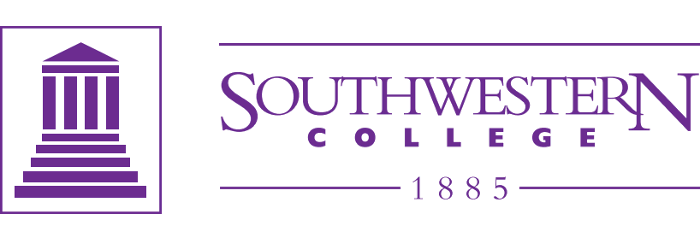2022 Best Online Criminal Justice Degree Programs
ON THIS PAGE
Courses Specializations Accreditation ChoosingFinancial Aid Careers Worth It?
Earning a bachelor's degree in criminal justice can open many doors. While some criminal justice majors find rewarding careers in law enforcement and corrections, others may choose to go into politics or law or work with people who have previously been incarcerated. Those passionate about criminal justice reform may want to pursue a career in policy advocacy or the nonprofit sector. These career options typically involve respectable salaries. For example, the expected median annual salaries for police officers and detectives — one potential career path — is $66,020, according to the Bureau of Labor Statistics.
View our methodology for more details about rankings or learn more about OnlineU.
Learn more about how we make money. ">ADVERTISEMENT
Online Criminal Justice Bachelor's Degrees You May Be Interested In

Arizona State University
Annual Tuition: $19,398 - $29,428
5 Programs (view all)

Southern New Hampshire University Online
Annual Tuition: $9,600
4 Programs (view all)

ECPI University Online
Annual Tuition: $16,639
2 Programs (view all)
2022 Best Online Criminal Justice Degree Programs
| Rank | School | Salary Score | Median Starting Salary |
|---|---|---|---|
| Union Institute & University | $114,947 | ||
| Fisher College | 97 | $73,807 | |
| Reinhardt University | 92 | $56,089 | |
| Wayland Baptist University | 92 | $55,876 | |
| Central Christian College of Kansas | 92 | $54,338 | |
| National University | 92 | $53,819 | |
| Columbia Southern University | 91 | $52,800 | |
| Herzing University | 91 | $52,717 | |
| Waldorf University | 90 | $50,817 | |
| Southwestern College - KS | 90 | $50,283 |
2022 Online Colleges Offering Bachelor's Degrees
Ranking Details
#1 Union Institute & University
- Salary Score: 100
- Median Starting Salary: $114,947
- Locations: Cincinnati (OH)
- Accreditation: HLC
Union Institute & University (UI&U) is a small, private institution that offers a Bachelors of Science in Criminal Justice Management requiring 120 credits. The curriculum covers criminal justice management and criminal justice management information systems. Some core classes include Applied Ethics, Supervision in the Criminal Justice Field, and Criminal Justice Management and Administration. To graduate, students must complete all the criminal justice core classes as well as general education courses. Finishing this degree can take as little as eight months or four years. There are two optional concentrations: Homeland Security and Forensic Science. Students take the same amount of credits for both concentrations, but depending on their interests, students can take different classes. Graduates may pursue careers as police officers, public safety officers, and firefighters, to name a few.
At UI&U, students use CampusWeb to access their classes, which are completely online. Additionally, students have email, phone, and live chat options for technical support.
#2 Fisher College
- Salary Score: 97
- Median Starting Salary: $73,807
- Locations: Boston (MA)
- Accreditation: NECHE
Fisher College (FC) is a small, private institution that offers a Bachelors of Science in Criminal Justice requiring 120 credits. The curriculum trains students in ethics, the criminal justice system, law enforcement, and criminal court processes. Some classes include Criminal Justice Research Methods, Ethics and the Criminal Justice System, and Corrections in America. To graduate, students must complete all core classes, general education classes, and an internship, which can take up to four years with a full-time schedule.
At FC, students use Blackboard Collaborate to access their coursework digitally. Students can choose whether to access it fully online or attend classes in person.
#3 Reinhardt University
- Salary Score: 92
- Median Starting Salary: $56,089
- Locations: Waleska (GA)
- Accreditation: SACS COC
Reinhardt University (RU) is a small, private institution that offers a Bachelor of Science in Criminal Justice requiring 120 credits. The curriculum covers everything from criminal evidence to current trends in law enforcement and victimology. Some core classes include Introduction to Forensic Science, Fraud Investigation, and Managing Criminal Justice Organizations. To graduate, students must fulfill all class requirements, including those required for the criminal justice major and general education courses. It can take up to four years for a student to graduate if they are going to school full time. Graduates may go on to pursue careers in cybersecurity or law, including roles like lawyers or judges.
#4 Wayland Baptist University
- Salary Score: 92
- Median Starting Salary: $55,876
- Locations: Plainview (TX)
- Accreditation: SACS COC
Wayland Baptist University (WBU) is a small, private institution that offers a Bachelor of Science in Criminal Justice Administration requiring 124 credit hours. Students can choose from a forensics specialization or one in law enforcement, legal studies, or special victims and investigations. In general, the curriculum trains students in the administration of justice and criminal law issues. A couple of core classes include Interview and Interrogation and Forensic Psychology. To graduate, students must complete all coursework requirements, which takes approximately four years. Graduates may pursue a variety of career pathways that could lead to roles such as detectives, deputy marshals, or investigators.
At WBU, students use Blackboard to complete their fully online coursework.
#5 Central Christian College of Kansas
- Salary Score: 92
- Median Starting Salary: $54,338
- Locations: McPherson (KS)
- Accreditation: HLC
Central Christian College of Kansas (CCK) is a small, private institution associated with the Free Methodist denomination. It offers a Bachelor of Science in Criminal Justice requiring 120 credits. The curriculum provides students with a more in-depth understanding of issues, such as terrorism and police administration. Some core classes include Patrol Operations, Corrections, and Sociology. To graduate, students must complete core classes, electives, and general education classes. It can take up to four years for a full-time student to finish their bachelor's degree. Some career opportunities for graduates include private investigators, staff attorneys, and crime scene investigators.
At CCK, students use Canvas, a popular digital learning platform, to access their fully online coursework and share in group discussions.
#6 National University
- Salary Score: 92
- Median Starting Salary: $53,819
- Locations: La Jolla (CA)
- Accreditation: WSCUC
National University (NU) Is a medium-sized, private institution that offers a Bachelors of Science in Criminal Justice Administration requiring 180 credit hours. The curriculum explores a range of topics, such as the principles of investigation and criminal law. Some core classes for this major include Criminology, Criminal Intelligence, Violence and Society, Ethics, and the Criminal Justice System. To graduate, students must complete 180 credits, including both credits for the major and general education classes as well as a senior project, which can take up to four years with a full-time schedule. Graduates may go on to become police officers, security guards, or forensic scientists.
At NU, students use Packback to access their learning materials, which are entirely online.
#7 Columbia Southern University
- Salary Score: 91
- Median Starting Salary: $52,800
- Locations: Orange Beach (AL)
- Accreditation: DEAC
Columbia Southern University (CSU) is a large-sized, private institution that offers a Bachelor’s of Science in Criminal Justice Administration that requires 120 hours. The curriculum is designed to teach students about criminology, management, security, and the theories and practices behind corrections. Some core classes for this major are Criminology, Victimology, Police and Community Relations, and Criminal Justice Organization and Administration. To graduate, students must complete all class requirements as well as a senior capstone project.
At CSU, students use Blackboard to access their fully online coursework.
#8 Herzing University
- Salary Score: 91
- Median Starting Salary: $52,717
- Locations: Multiple Locations
- Accreditation: HLC
Herzing University (HU) is a small, private institution that offers a Bachelor of Science in Criminal Justice that requires 120 credits. There are two optional concentrations offered with this online degree: (1) Homeland Security and Counterterrorism and (2) Concentration in Management and Leadership. The curriculum discusses forensics, criminology, and law enforcement. Some core classes for this major include Criminal Law, Law Enforcement Security, Evidence Forensics, and Criminal Psychology. To graduate, students must complete all required classes, which include electives and general education coursework. In addition, a criminal justice capstone project or internship is also required for graduation. It can take students up to two and a half years or 32 months to finish this degree. Graduates may become crime scene investigators, detectives, or correctional officers.
At HU, students use Canvas, a digital learning platform, to access their coursework virtually.
#9 Waldorf University
- Salary Score: 90
- Median Starting Salary: $50,817
- Locations: Forest City (IA)
- Accreditation: HLC
Waldorf University (WU) is a small, private institution that offers a Bachelor of Science in Criminal Justice requiring 120 credit hours. There are five different concentrations available for the student to choose from: (1) Cybersecurity, (2) Forensic Mental Health, (3) Forensic Psychology, (4) Homeland Security, and (5) Public Relations. The curriculum aims to impart students with knowledge about the theories and practices behind law enforcement, victimology, mental health, and crime. Some core classes include Judicial Process, Criminal Law and Diversity, and Ethics in Criminal Justice. To graduate, students must complete the core curriculum as well as classes that pertain to their chosen concentration and electives. This program takes four years for full-time students to complete. Graduates may become law enforcement officials and correctional officers.
At WU, students use Blackboard to complete their online coursework.
#10 Southwestern College - KS
- Salary Score: 90
- Median Starting Salary: $50,283
- Locations: Winfield (KS)
- Accreditation: HLC
Southwestern College (SC) is a small-sized, private institution that offers a Bachelor of Science in Criminal Justice and a Bachelor of Science in Security Management, each requiring 124 credit hours. The curriculum for the former introduces topics that range from criminal law and policing to contemporary issues in the field of criminal justice. For example, some classes in the criminal justice concentration include Cybercrime and Criminal Investigations. The security management degree, on the other hand, covers project management, physical security systems, and emergency planning.
To graduate from either degree, students must complete concentration coursework, general education classes, and a senior capstone. It takes approximately four years for full-time students to finish. Those graduating with a criminal justice degree may choose to follow career pathways to become state troopers, FBI agents, or corrections officers, to name a few possibilities. Security management alumni may go on to become air marshals, emergency management directors, or computer forensic investigators.
At SC, students use Blackboard to access their fully online coursework.
Online Criminal Justice Degree Overview
A bachelor's degree in criminal justice prepares graduates for an array of jobs in this field. Many become police officers, detectives, FBI agents, or correctional treatment specialists for detention facilities. By taking specific courses, some graduates may become cybersecurity analysts, homeland security specialists, or emergency managers. Others continue their education and earn master's degrees in criminal justice to become criminologists or to pursue leadership positions in criminal justice organizations.
The curriculum for an online program in criminal justice features both broad and focused topics in the field. Students gain a general overview of police procedures and the techniques for collecting evidence at a crime scene. Classes in criminology and human behavior provide a background in the psychology of criminal behavior. More focused courses such as criminal law, psychology of policing, comparative criminal justice systems, cybercrime, juvenile delinquency, justice studies, and history of law may also be included.
Students can choose from a wide range of criminal justice programs to suit their interests and career goals, and many are opting to pursue their degrees entirely online. Applicants to an online bachelor's degree program in criminal justice must have a high school diploma or its equivalent and meet other admission requirements, such as a minimum GPA. Students with an associate degree from a community college may be able to transfer credits into their program. It typically takes four years of full-time study to complete the 120-128 credit hours required to earn the degree.
Students can choose from a wide range of criminal justice programs to suit their interests and career goals, and many are opting to pursue their degrees entirely online.
Criminal Justice Courses
The courses required to earn an online criminal justice degree prepare students to work in law enforcement, court systems, corrections facilities, and more. Many online courses touch on management and administrative aspects, and students learn relevant skills, such as analysis, decision making, problem solving, and communication. Among the most common courses are:
- Criminal Law: Through this course, students gain a comprehensive understanding of the U.S. criminal justice system. By reviewing court cases, students learn the stages of a criminal trial from defense to sentencing and appeals. Additional topics may include elements of a crime, court structures, victims' rights, and offenders' rights.
- Criminology: A course in criminology offers a deeper understanding of two broad themes: the psychological and sociological factors that motivate offenders to commit crimes, and society's response to criminal behavior. Coursework will cover a number of criminological theories, social policy, criminal institutions, and technological innovations.
- Ethics in the Criminal Justice System: Students learn several analytic frameworks and ethical theories in this course, as well as the concepts of morality, justice, and duty. To prepare for ethical dilemmas they may face in the criminal justice field, students are introduced to a variety of scenarios and presented with opportunities to practice ethical decision making.
- Introduction to Criminal Justice: Typically the first course in any criminal justice program, this class explains the fundamental philosophies underpinning the U.S. law enforcement system. Students also learn about the structure of the criminal justice system. Coursework may provide a detailed look at the court system, including corrections, sentencing, and juvenile justice.
- Investigative Procedures: In an introductory course on crime investigation, students learn how to interview potential witnesses and suspects, gather evidence, process crime scenes, and examine collected evidence. Students also gain an understanding of how investigative evidence is used in court, and how evidence must be protected.
- Law Enforcement and Community Policing: This course provides students with a broad overview of the history, current state, and emerging issues of law enforcement in the U.S. Coursework includes wide-ranging topics, from theories and strategies to public safety, media relations, and excessive force.
Criminal Justice Specializations
While many schools offer general programs in criminal justice, some online criminal justice degrees offer a specialization in a particular aspect of the criminal justice system. These specializations enable students to customize their online programs in criminal justice to align with their career goals. Some of the specializations available include:
- Criminology: Criminologists work with law enforcement agencies, and their work is research driven with a focus on statistics and crime pattern identification. A specialization in criminology teaches students about compiling data, analyzing all aspects of criminal investigation, and finding methods of prevention. Many of the required courses involve hands-on training under the supervision of an experienced professional. To become a criminologist, either a bachelor’s or a master’s degree is required, along with proper licensing in some states.
- Cybersecurity: For those with an interest in both criminal justice and information technology, opting for a specialization in cybersecurity might be a smart choice. This specialization prepares graduates for a number of occupations related to protecting information systems. Cybersecurity courses may include network security, ethics and privacy, digital forensics, and cyber law. Many of these classes involve application-oriented projects.
- Emergency Management: Emergency management professionals are trained to safeguard the public and handle natural and manmade disasters when they occur. To complete a specialization in emergency or security management, students take courses in emergency planning, hazard risk assessment, crisis communication strategies, security breach management, mitigation tactics, and allocation of resources. In some courses, students may have the opportunity to apply theoretical concepts to real-world scenarios.
- Homeland Security: Online homeland security programs prepare students to protect communities by filling public safety roles in corporate, military, and governmental environments throughout the country. The curriculum for a specialization in homeland security explores fundamental topics such as the intelligence community, counterintelligence, terrorism, infrastructure protection, surveillance, and privacy.
- Law Enforcement: Graduates are prepared for careers as police officers, sheriffs, park rangers, or corrections officers. This specialization includes courses in community policing, investigative principles, criminology, victimology, and criminal law.
Accreditation for Online Criminal Justice Degrees
Students who plan to pursue an online degree in criminal justice should only enroll in accredited programs. For a college or university to earn accreditation, an independent agency approved by the Council for Higher Education Accreditation or the U.S. Department of Education must determine that all of the school's programs, facilities, faculty, and student services meet high standards for quality and academic rigor. For a list of accredited online criminal justice programs, students can visit the CHEA or USDE websites.
Individual programs within a college or university can also be accredited by other USDE- or CHEA-approved agencies. There is no programmatic-level accrediting body for criminal justice programs, however, the Academy of Criminal Justice Sciences has certified 15 bachelor's and master's programs in the U.S. According to the ACJS, their certification standards are similar to accreditation standards.
Enrollment in an accredited program is important for several reasons. It is a requirement to qualify for financial aid, transfer college credits, and for acceptance into most graduate programs. Depending on a student's career path, it may also be needed for future licensure. Finally, attendance at an accredited school assures students that they've enrolled in a respected, credible online degree program.
Enrollment in an accredited program is ... a requirement to qualify for financial aid, transfer college credits, and for acceptance into most graduate programs. Depending on a student's career path, it may also be needed for future licensure
How to Choose an Online Criminal Justice Degree
Selecting one of the best online criminal justice programs is a complex and personal decision based on an individual's resources, preferences, and goals. Many factors need to be taken into account, some of which are related to the colleges or universities themselves. Perhaps most important is the tuition cost of a school's online programs, which may be lower than or at least comparable to in-state resident tuition rates. It's also essential to choose a school that is accredited, especially for students planning to transfer credits from an associate degree. Student services and financial aid options may also be significant factors.
Prospective criminology and criminal justice students also need to evaluate whether individual programs meet their needs. For example, students should explore the focus of each program's curriculum, the online format, the availability of specializations, faculty members' relevant work experience, and opportunities to gain real-world experience through fieldwork. Students also need to decide between a Bachelor of Arts in Criminal Justice degree, which is often more theoretical in nature, and a Bachelor of Science in Criminal Justice degree, which is typically more technically oriented.
Students should explore the focus of each program's curriculum, the online format, the availability of specializations, faculty members' relevant work experience, and opportunities to gain real-world experience through fieldwork.
Financial Aid for Criminal Justice Degree Programs
Students who are enrolled in accredited, online criminal justice degree programs may be eligible for several types of financial aid. Scholarships or grants are the best types of aid because they do not have to be paid back. There are also student loans available, but these have to be repaid with interest. Federal and state student loans typically have lower interest rates and more flexible repayment terms than private student loans.
To apply for financial aid, students should begin by submitting the Free Application for Federal Student Aid (FAFSA). Once their applications have been reviewed, students will be notified of their eligibility for aid, as well as the amount and types of aid they're being offered. If students have any questions about their financial aid packages, they should contact the financial aid officers at the college they would like to attend.
Online criminal justice students may also be eligible for private scholarships. The following scholarships, which require separate applications from the FAFSA, are examples of the private scholarships available to criminal justice and criminology students:
WIFLE Scholarship Program
The Women in Federal Law Enforcement Foundation awards a total of $10,000 annually to students enrolled in criminal justice programs.
ISF National Scholarships
The Islamic Scholarship Fund provides funding for Islamic American students enrolled in fields that impact public policy, including criminal justice.
Brian Terry Scholars Program
This scholarship program provides varying awards for high school seniors planning to enroll in criminal justice programs.
What Can I Do With a Bachelor's Degree in Criminal Justice?
Online criminal justice programs introduce undergraduates to the three arms of criminal justice in the U.S.: the courts, the corrections system, and law enforcement. This foundation prepares students for criminal justice careers, such as police or sheriff’s patrol officers, private security specialists, probation officers, and correctional officers, among other career opportunities. With additional education and training, criminal justice graduates can also assume advanced administrative or supervisory roles in law enforcement or become lawyers and criminologists.
The Occupational Outlook Handbook, published by the Bureau of Labor Statistics, provides additional information on these possibilities.
Police and Sheriff's Patrol Officers
Median Annual Salary: $70,000Police officers and sheriffs are tasked with protecting lives and property. Among many other duties, they respond to emergency and nonemergency calls for assistance, patrol designated areas, arrest people who are suspected of committing crimes, write crime reports, and testify in court. According to the BLS, the median annual salary for police officers and sheriff's patrol officers is $70,000, and demand for law enforcement officers is expected to increase slightly over the next decade. Although it's possible to obtain a position in law enforcement with a high school diploma or some college coursework, some police departments and federal agencies require individuals to have a bachelor’s degree.
Detectives and Criminal Investigators
Median Annual Salary: $89,300Detectives and criminal investigators are both specialty careers within law enforcement. Criminal investigators are charged with investigating crime scenes, collecting evidence, and examining evidence in crime scene laboratories. Detectives work with crime scene investigators, gathering information and evidence, interviewing witnesses, and examining records. Because of the advanced knowledge needed to perform these jobs, professionals earn a median annual salary of $89,300.
Probation Officers and Correctional Treatment Specialists
Median Annual Salary: $55,690Correctional treatment specialists create treatment plans for convicted offenders who have been put on probation or who have served their prison sentence and been released. Probation officers and parole officers work with these individuals on an ongoing basis, implementing the treatment plans and monitoring progress. Jobs can be found both at rehabilitation facilities and in criminal justice agencies, and the work can be stressful and possibly dangerous. The BLS reports that correctional officers and other rehabilitation professionals earn median annual wages of $55,690.
Information Security Analysts
Median Annual Salary:$103,590Undergraduates who specialize in cybersecurity can become information security analysts who plan and execute IT security measures designed to protect organizations' systems, networks, and data. Most information security analyst jobs are found in the private sector at large companies and consulting firms, but there are also positions available in governmental agencies. The BLS states that bachelor's degree holders who become information security analysts earn median annual salaries of $103,590, and the need for professionals is expected to increase dramatically — by 33% — through 2030.
Private Detectives and Investigators
Median Annual Salary:$53,320Private detectives and investigators are often hired to collect evidence and search for information about people, finances, and other matters on behalf of individuals, law firms, or other businesses. Although some positions are available to those with only a high school diploma, other jobs require a bachelor's degree. According to the BLS, the median annual salary for investigators is $53,320, and the need for detectives is expected to grow by 13% over the next 10 years.
Is an Online Bachelor's Degree in Criminal Justice Worth It?
Those who aspire to a career in the criminal justice system might wonder if it's necessary to earn a bachelor's degree. Although a bachelor's degree is not required to become a law enforcement officer in many states, it can be a valuable asset in that career path. A degree is also a requirement for other criminal justice occupations. Before enrolling in an online criminal justice program, students need to carefully consider a number of factors and weigh some pros and cons.
Potential Benefits
- Criminal justice is a flexible major that can lead to a range of occupations with above-average salaries.
- Prospective students who consider studying criminal justice online can select from a wider pool of schools and programs without changing locations. They may also enjoy lower tuition rates and more flexible school schedules that work around other obligations.
- Criminal justice has been described as an easy major, but this may not be true for all programs. Many require a lot of reading and writing, and some science is involved. However, advanced math courses are not typically required, which may make this an easier degree for some online students.
Potential Drawbacks
- Some occupations in criminal justice are projected to decline or grow at a slower rate than the national average of 8%. For example, job opportunities for correctional officers and bailiffs are expected to decline by 7% through 2030.
- Many criminal justice graduates go into law enforcement, becoming patrol officers, detectives, corrections officers, and parole officers. These jobs can involve a significant amount of personal risk.
- Some online students dislike the distance learning environment because it makes them feel disconnected from classmates and instructors. They may have to devote more effort to connecting with others through discussion forums.
Students also need to examine the value of a degree in light of their own personal circumstances, such as financial responsibilities and family and work obligations. As with all bachelor's programs, earning an online criminal justice bachelor's degree requires a significant investment of time, money, and energy. Individuals must decide for themselves whether the benefits they expect to receive are worth it.
Why Trust Us?
27 Data Researchers
60,000 Degrees Researched Annually
20,000 Hours Spent on Research Annually
Launching Rankings Since 2009
Related Articles
2023 Best Online Law Enforcement Degrees
The best online bachelor's degrees in law enforcement can help prepare students to work in local police departments, federal agencies, and courts.
By OnlineU Staff Writers | 12/29/2022










